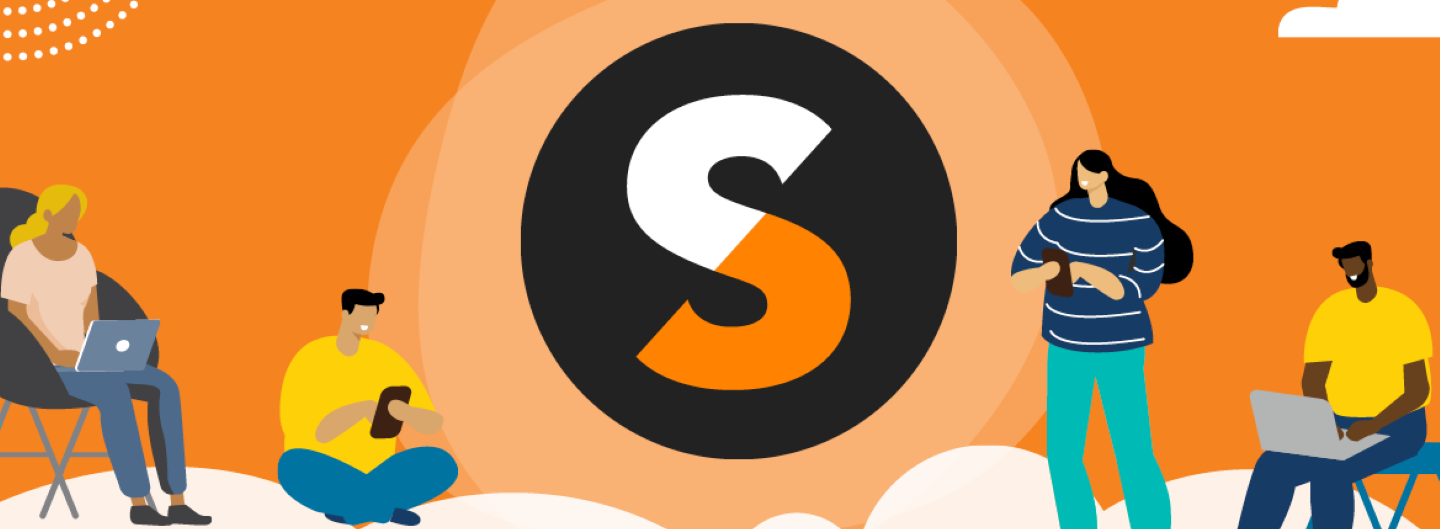What's new in library tech! Welcome to our monthly collection of fun and hopefully useful news items from our great twitter feed and wherever else we find them.
This month we feature TechSoup's new survey on what libraries and nonprofits need that we hope you'll participate in. We want to inform grantmakers and product donors on what you need. We also explore whether your online storytimes violate copyright rules, the scientific findings on how long the COVID virus lasts on library materials, and LITA's top pandemic tech trends.
Want more? We reveal the sad saga of Internet Archive's National Emergency Library and the California Digital Library that requires no library cards. How do they do that? Then there's the best free movie websites for your patrons and the best mobile apps for your younger patrons. So much news!
Here's your midsummer night's dream library tech newsbytes — so to speak.
Do Online Storytimes Violate Copyright?
Lawyer-librarian Tomas Lipinski tackles the legalities of core online programming in American Libraries magazine. Long story short: Online storytimes are legal. I'll just quote him. "Making a public performance of a musical work — by playing it yourself or playing a recording of it — is allowed under Section 110(4) of the US Copyright Act, so long as the work performed is a nondramatic literary or musical work, which the US Copyright Office defines as a wide range of 'fiction, nonfiction, poetry, textbooks, reference works, directories, catalogs, advertising copy, compilations of information, and computer programs.' This is the same provision that allows you to read a book during storytime, as that is a public performance of a nondramatic literary work."
OCLC's REALM Project Results So Far
IMLS director Crosby Kemper talked about this at our Library 2.0 Rural Library Mini-Conference last month. OCLC's new REALM Project gathers science-based information on how long the virus that causes COVID-19 lasts on surfaces. The finding so far? After one day, no virus is detectable on hardcover book covers, paperbacks, and plastic DVD cases. The virus was undetectable on the paper inside of a book and mylar book jackets after three days. The REALM Project will be doing lab testing, with results expected by the end of July. Project updates will be posted at oc.lc/realm-project as they become available.
LITA's Top Tech Trends at ALA's Virtual Conference 2020
LITA's Tammy Wolf led the Top Tech Trends session at the ALA Virtual Conference 2020 in late June. The top pandemic-focused topics were privacy and security, digital inclusion and access, and programming.
Alison Macrina, director of the Library Freedom Project, warned that the pandemic is leading to new biometric surveillance solutions, like fever detection devices, and other forms of profiling that in her view don't work as advertised. Laura Cole, director of BiblioTech in San Antonio, said the impact of the digital divide really hit home as their library closed when the pandemic started. Circulating hotspots have been useful as have installing exterior Wi-Fi around library buildings and bookmobiles.
The Sad Saga of Internet Archive's National Emergency Library
In March, the Internet Archive announced the National Emergency Library. It was a collection of books that supported emergency remote teaching, research activities, independent scholarship, and intellectual stimulation while universities, schools, training centers, and libraries were closed. Their digital library was free to read for anyone with an Internet connection, anywhere in the world. Their focus was providing online access to older books from the 1920s to the 1990s that don't have an e-book available in OverDrive and Hoopla.
The National Emergency Library was initially praised as a benevolent gesture towards an increasingly isolated population. However, it came under sharp criticism from numerous authors and publishers for copyright infringement, a long-standing accusation against the organization, and for depriving authors of income during a period of economic upheaval. Internet Archive ended the program in June this year.
Califa's No-Library-Card Digital Library
Speaking of impressive new technology, Califa has partnered with Bibliolabs to launch enki California Digital Library, a free e-book library available to every person in California. It requires no library cards and there are no hold queues. How does that work? It's about geolocation technology that tracks a person's IP address and triangulates it with his or her Wi-Fi signal.
The Best Free Movie Websites for 2020
Lifewire reports that there are now a number of websites where you can stream movies for free. Here is their list of the top six that are completely legal to use for your patrons.
- Best Overall: Crackle
- Best for Finding Movies Around the Web: Yidio
- Best for High-Quality Movies: Vudu
- Best for Movie Information: IMDb TV
- Best for a TV Experience: Pluto TV
Notable Children's Digital Media for 2020
Looking for expert-approved apps for children 14 years of age and younger? ALA has released a nice list of them. Here are some examples:
- Arithmagic — Math Wizard Game. iOS/Android/Amazon. Elementary.
- The Cat in the Hat Builds That. iOS/Android/Amazon. Pre-K.
- Funexpected Math. iOS. Pre-K, Elementary.
- Me: A Kid's Diary. iOS. Elementary, Middle school.
- Storyline Online (picture books read by celebrity readers). iOS/Android. Pre-K, Elementary.
We hope you like our new batch of newsbytes this month!







